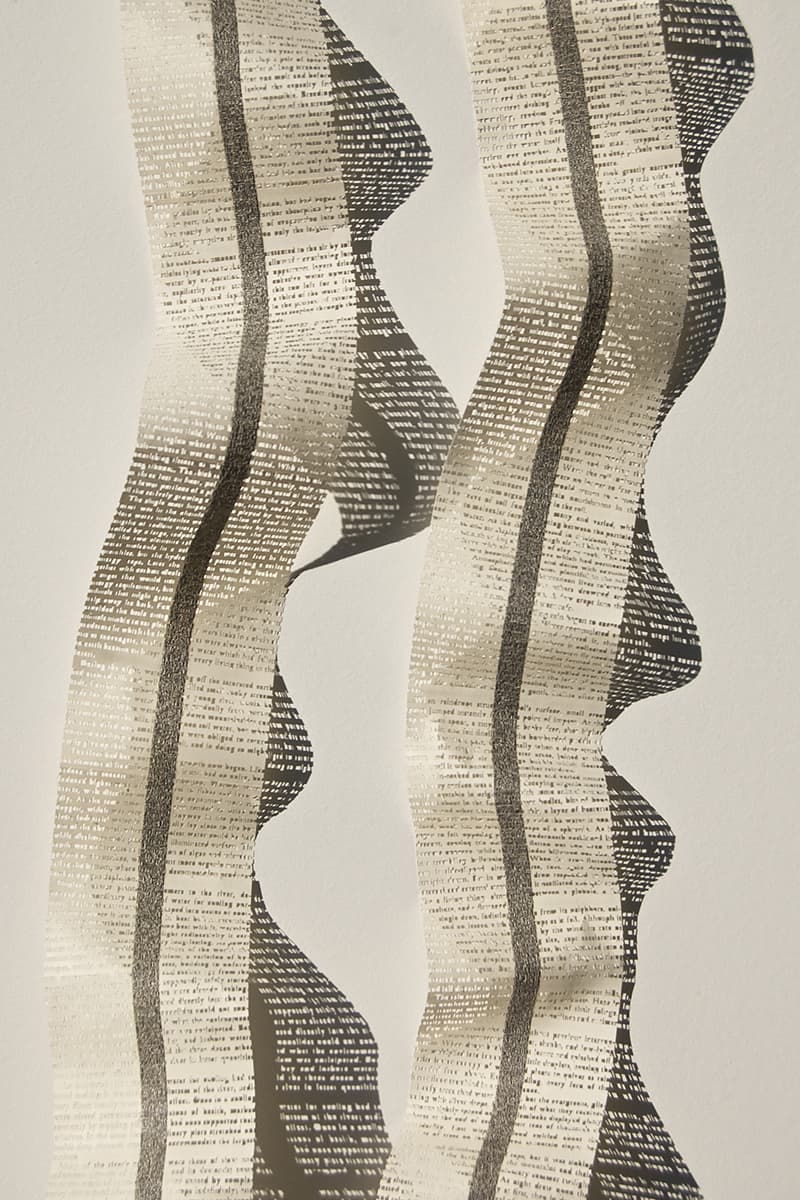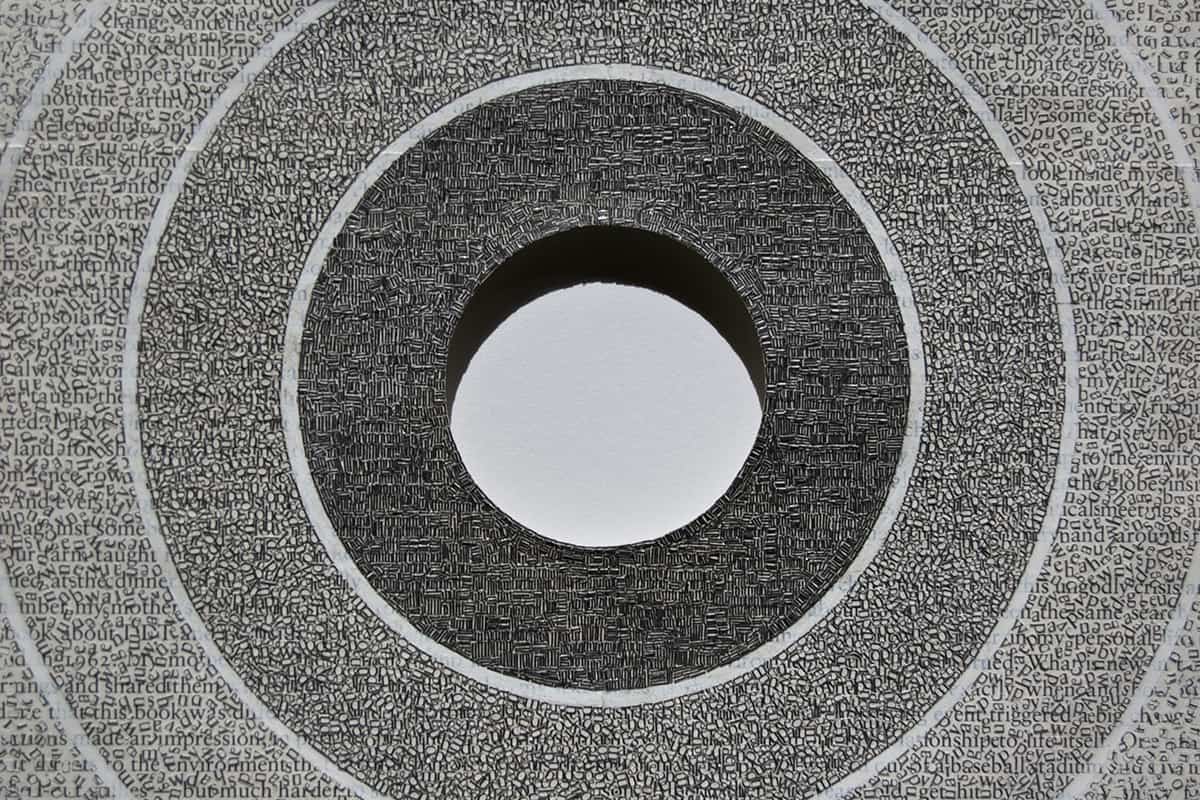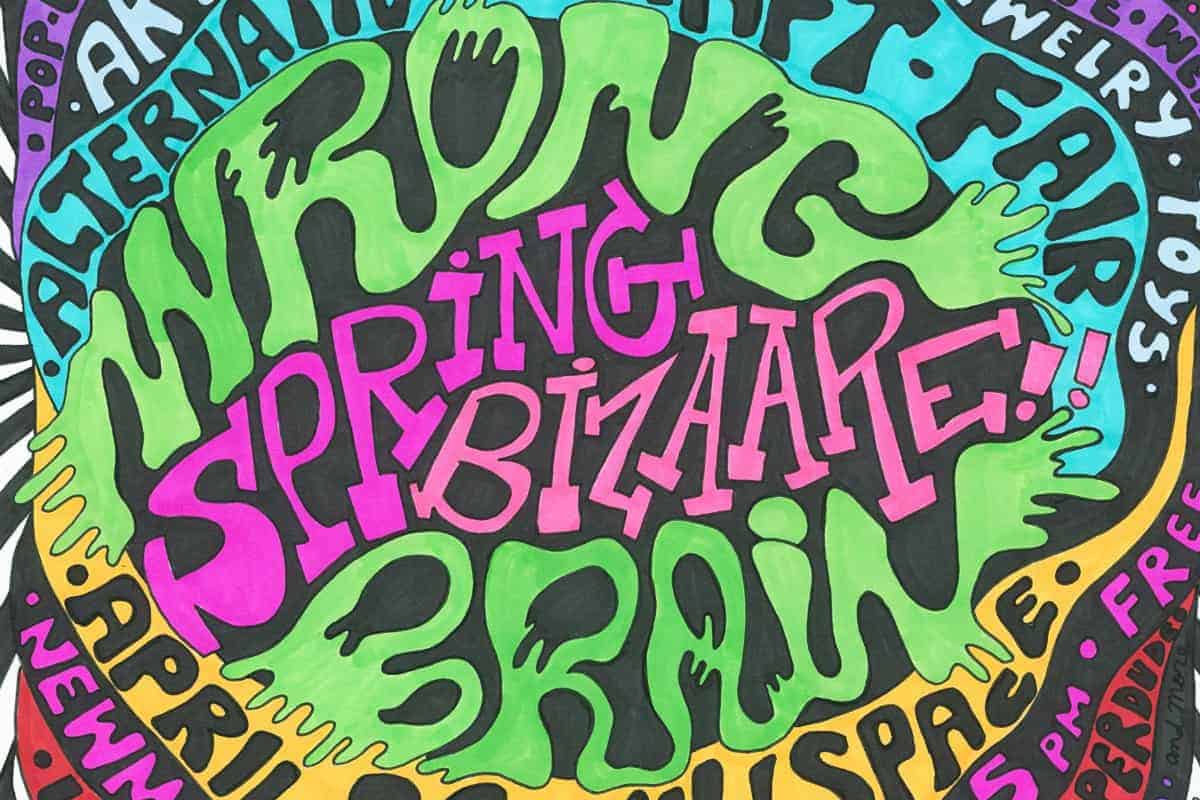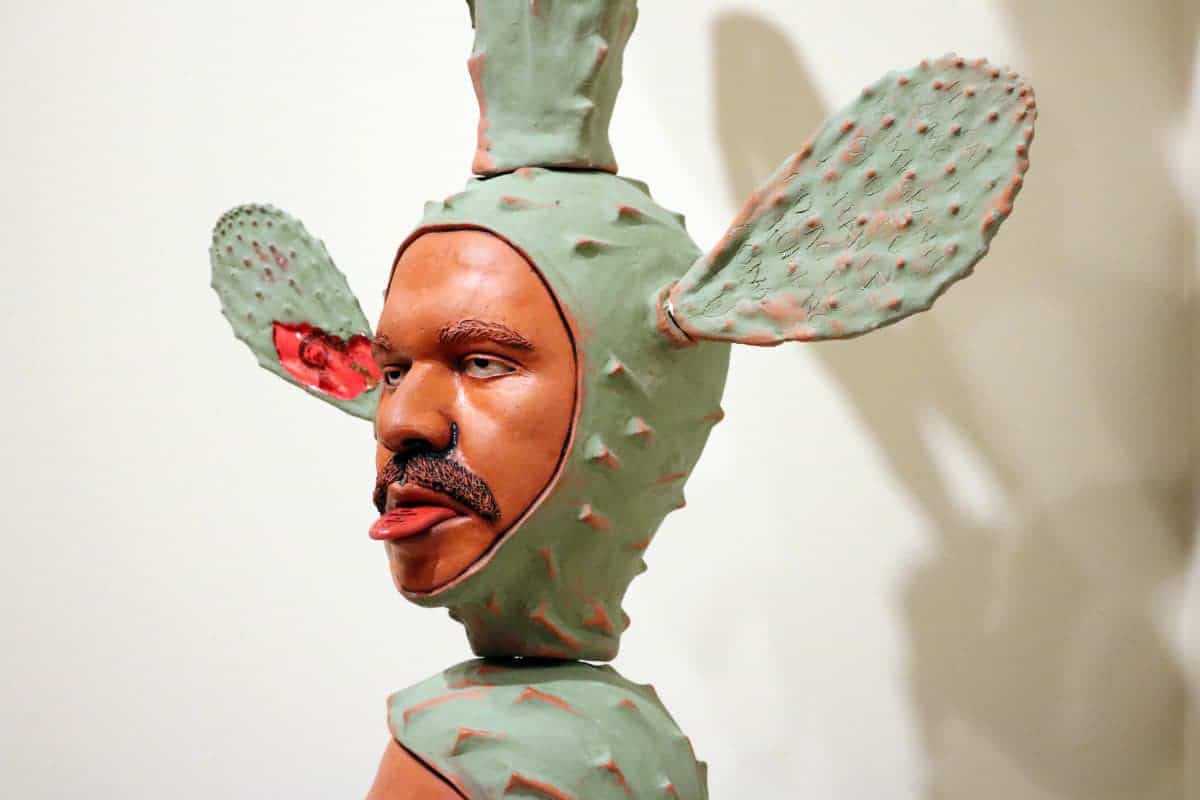Youdhi Maharjan finds peace and comfort through the hours of meticulous, Sisyphean work he puts into his art.
Henniker, New Hampshire’s Youdhi Maharjan unfolds new eternities between hidden words and displaced punctuation, meticulously reconstructing old books rescued from thrift stores. Maharjan doesn’t make art to evoke feelings or unveil some grander purpose. It is in the painstaking process of reconstruction, of meaningless repetition and rediscovery, that he finds higher truth. “Art for me does not have purpose,” he says. “There is no hope, there is no emotion in my work, there are no politics. Art for me is just a process where I can hide away to quiet my mind.”
Beginning with inspiration from a book’s title and a simple rule, Maharjan moves through the text, disassembling it. In Nelson Mandela’s Long Walk to Freedom, Maharjan erased every word, leaving only periods behind. In other texts he may leave a word or letter, connecting what is left behind through lines or shapes. “In the process, I experience a different kind of eternity, the sweet kind, that lasts for few material moments but feels like forever,” he explains.

Youdhi Maharjan, Of Murmuring Streams, 2017, text cutout on book pages, 40 x 3.35 in. each. Photo by Youdhi Maharjan
After being introduced to Waiting for Godot by Samuel Beckett, Maharjan became deeply rooted in notions of a Sisyphean eternity, the “monotonous repetition of the same labor over and over again, with no hope or expectation for an end.” Born in Nepal and trained in mathematics and science in military school, he finds comfort in uniformity and precision. What is a book without words? What is art without meaning? Maharjan believes truth exists in the mundane, in the repurposing of action, in the repetition of nothingness, forever.










